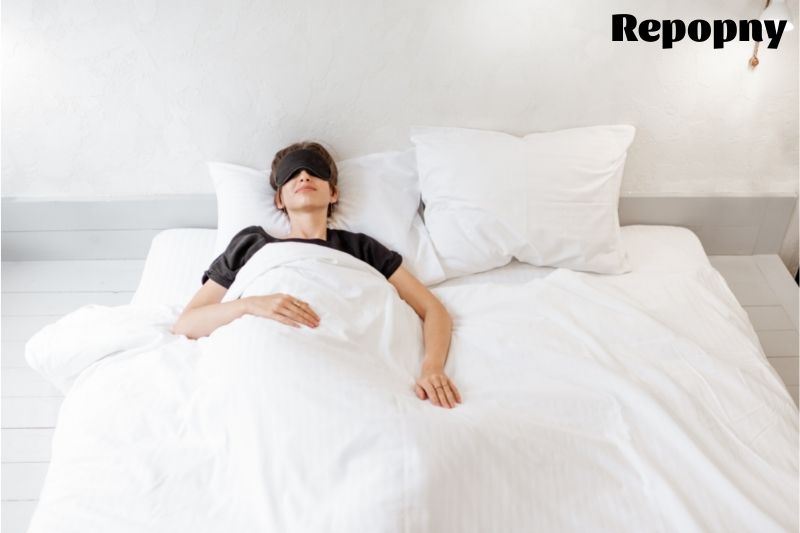It is not uncommon to experience difficulty sleeping after gallbladder surgery. Several things can contribute to this, including pain, anxiety, and medication side effects.
Thankfully, there are a few things that you can do to help improve your sleep quality. Try following these tips on how to sleep after gallbladder surgery.
Contents
- 1 Sleeping Difficulties After Gallbladder Removal
- 2 How to Sleep After Gallbladder Surgery
- 2.1 Sleep on your back or left side, not on your stomach or right side
- 2.2 Use pain medicines, either prescription or over-the-counter.
- 2.3 Make your bedroom a relaxing place to sleep
- 2.4 Adhere to your doctor’s workout recommendations.
- 2.5 Avoid eating large meals before going to bed
- 2.6 It’s a good idea to diffuse essential oils.
- 3 Causes of trouble sleeping after gallbladder surgery
- 4 Recovery From Gallbladder Surgery
- 5 When To Contact A Doctor After Gallbladder Surgery If You’re Having Trouble Sleeping
- 6 When is it necessary to have gallbladder surgery?
- 7 FAQs
- 8 Conclusion
Sleeping Difficulties After Gallbladder Removal
Sleeping is difficult after surgery or severe medical treatment, but it’s more crucial than ever during rest and recovery. Your body is hard at work healing itself while you sleep! Your gallbladder recovery period will be much longer if you can’t fall and remain asleep, and you’ll be miserable.
Anesthesia side effects may still be present in your system days after surgery. This has the potential to disrupt your sleeping patterns. Drugs you take after surgery can also disrupt your sleep. Stress and other psychological reactions to surgery can sometimes make sleeping difficult.
Any surgery is a significant undertaking. Sleep is necessary for healing, but finding a comfortable position can be difficult. This is especially true if you sleep on your stomach or side and cannot sleep in your preferred position owing to incision placement.
If you’re in pain, getting adequate sleep might be difficult, so follow your doctor’s directions when it comes to taking pain-relieving medications to help you fall asleep.
How to Sleep After Gallbladder Surgery
Pumping air into your abdominal cavity is used in open and laparoscopic gallbladder surgery to make the process easier for your surgeon.
You may feel highly bloated for the first 1 or 2 days after your incisions are closed. After the anesthetic from the surgery wears off, the pressure of the excess gas pressing against your new incisions may cause surges of discomfort or pain. A temporary post-operative drain may also be necessary.
This discomfort is common, but it can be difficult to relax, especially while lying down.
As you recover from your operation, it’s essential to have a plan in place for how you’ll get some rest after your gallbladder has been removed.
Sleep on your back or left side, not on your stomach or right side
Your incisions for this surgery will be on the right side of your belly, where your gallbladder is located. If you can avoid sleeping directly on your incisions, you may be able to relieve some of the pressure and discomfort.
If you’re able, sleep on your back. Sleep on your left side if you have to sleep on your side.
Use pain medicines, either prescription or over-the-counter.
In the days following your surgery, your doctor may prescribe an oral pain reliever to help you manage your pain.
Even if you don’t acquire a prescription for pain relief, over-the-counter pain relievers a few hours before bedtime can help you get a better night’s sleep. A nonsteroidal anti-inflammatory (NSAID) such as ibuprofen (Advil) or naproxen (Aleve) given two hours before bedtime may help you avoid waking up in pain.
Precaution
Following surgery, many prescription pain drugs might cause constipation, making it difficult to sleep. Following gallbladder surgery, a doctor is more likely to prescribe a stool softener and pain medicine.
You can also take simethicone products, which can help with gas discomfort, to help with probable bloating and gas, such as:
- Gas-X
- Alka-Seltzer Anti-Gas
- Mylanta Gas
Make your bedroom a relaxing place to sleep
When recovering from any form of surgery, it’s critical to have a clean, relaxing place to rest while you recover.
If you have time to prepare your bedroom before your surgery, invest in blackout curtains and moisture-wicking linens to create a dark, peaceful environment.
Before lying down, make sure you have a drink of water, your phone charger, and any other items on a nearby accessible surface, as getting up and out of bed several times may ache. You could use an eye mask and noise-canceling earplugs to reduce nighttime disruptions.
Adhere to your doctor’s workout recommendations.
Your doctor will give you specific instructions on how (and when) to begin exercising after surgery. Any strenuous or intensive exercise is banned in the first several days after surgery.
However, taking a short stroll during the day can help reduce bloating, improve circulation, and make you feel better.
Avoid eating large meals before going to bed
There is no special diet you must follow after having your gallbladder removed, and heavy meals may not appeal to you in the days after your surgery.
Stick to modest, light meals that are easy to digest and don’t expand your stomach when you try to sleep after surgery to prevent dealing with gas or digestive upset on top of other difficulties.
Bananas, crackers, and soup are all healthy choices. To encourage good digestion, limit your intake of fatty meats, processed foods, and alcohol.
It’s a good idea to diffuse essential oils.
When used in conjunction with conventional treatment, there’s reason to believe that aromatherapy can minimize your feeling of pain during the recovery process.
You can use an oil diffuser to disperse the scents of rosemary, lavender, chamomile, or eucalyptus oil where you sleep to help you relax and sleep better.
Causes of trouble sleeping after gallbladder surgery
After your gallbladder is removed, resting can be difficult for a few days. Your gallbladder removal may differ depending on why you required it in the first place if you’ll be remaining in the hospital for a few nights, and the type of surgical surgery you underwent.
People who had open this surgery under general anesthesia were more likely to lose sleep the next night than people who had laparoscopic gallbladder surgery under general anesthesia, according to a 1990 study published in Trusted Source.
The same study found that your body will lose a large quantity of REM sleep in the first 2 to 4 nights after either type of surgery, but that in the days afterward, your body will try to compensate by providing you with extra REM sleep.
The following are examples of possible causes:
- post-anesthesia sleeplessness
- stomach pressure
- bloating pain from incisions
- difficulty getting comfortable outside of your usual sleep position
- post-anesthesia insomnia
Recovery From Gallbladder Surgery
You will most likely be able to go home the same day if you have laparoscopic gallbladder removal surgery. If you have an open gallbladder removal, you may need to stay in the hospital for 1 to 2 nights for observation.
Within a few hours of waking up following the surgery, you will be encouraged to go about and get your circulation moving. Your doctor will advise you on which activities you should refrain from for a few days.
When you start eating after surgery, you may feel diarrhea or nausea, but this should pass soon.
The surgery may cause pain and discomfort as you recover, but you should be able to resume your normal activities in about a week.
In terms of long-term rehabilitation, you may suffer some lasting soreness or abdominal discomfort, but this should subside after six weeks.
When To Contact A Doctor After Gallbladder Surgery If You’re Having Trouble Sleeping
It’s usual to have trouble sleeping for the first 1 to 2 weeks after gallbladder surgery. However, if you’re having difficulties sleeping after that, something else may be blamed.
Sleep is necessary for proper healing. If you’re still having trouble sleeping two weeks after your surgery, talk to your doctor about your choices at your post-operative checkup (or give them a call).
If your incision seems to be infected or if bloating in your abdomen does not go away, you should contact your doctor.
The following are signs that it’s time to see a doctor:
- a fever that stays above 100.4°F (38°C) for an extended period
- After your operation, you may experience discharge or pus that is green, gray, or yellow, weeping or foul-smelling wounds and persistent nausea, vomiting, or dizziness.
When is it necessary to have gallbladder surgery?
It is a fairly standard procedure. When your gallbladder is causing you substantial pain, your doctor may propose this treatment. Your doctor may recommend this procedure if you have experienced reoccurring gallstones or bile obstructions.
Gallbladder removal is also sometimes done as an emergency procedure if you have inflammation or infection that puts your other organs at risk.
FAQs
How long do you have to stay in bed after gallbladder surgery?
Continue to move forward. After removing your gallbladder, you’ll need to rest, but that doesn’t mean you should sit in front of the TV for the next three weeks. You will only require total rest for the first 24 hours in most cases.
Is it possible to lie down after gallbladder surgery?
Try not to lie down completely flat. Elevate your head on several cushions and lay a pillow beneath your legs to increase comfort and reduce the chance of developing shoulder soreness.
Do you think you’ll be able to bend over following gallbladder surgery?
Following surgery, avoid lifting more than 10 pounds for four weeks and significant bending or twisting for one to two weeks. This is to allow the incisions to heal.
When can I am sleeping on the right side after gallbladder surgery?
You may sleep flat on your back after 48 hours but not on your stomach or sides for four weeks. Fluids are essential after surgery. It is critical to drink enough fluids to assist the body in flush out the medicines used during surgery.
Related post:
Conclusion
Before you can get a good night’s sleep after surgery, it will be essential to establish the best ways for you to rest after surgery.
This will help you get through the discomfort of surgery and heal faster. By following a few of the tips on the Repopny page, you should be able to get your recovery off to a great start.





